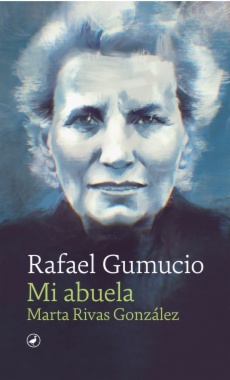Mi abuela
Inicia sesión para disfrutar este recurso. Si aún no estás afiliado a BibloRed, haz clic en el botón.
Acceder- Autor
- Año de publicación 2022
- Idioma Español
- Publicado por Catedral
- Descripción
- Uno de los libros más notables de la nueva crónica latinoamericana.La abuela de Rafael Gumucio no lo perdonaría jamás por este libro, uno de los más notables de la nueva crónica latinoamericana. Y al mismo tiempo, en una hipérbole de la paradoja que le encantaba ser, lo admiraría con la misma fruición con la que adoró al Proust de damas y damiselas. En esta biografía que atraviesa el siglo xx chileno, con transatlánticos literarios que van de Constantinopla a París, el escritor y periodista salda cuentas con la mujer que en vida ya era mítica en una aristocracia sudamericana llena de frustración y contradicciones. La abuela sofisticada de Gumucio suplanta al padre ausente, a la madre borrosa, a un país esquivo y chúcaro, lejano y frío.Marta Rivas González murió para que su nieto la contara. Amiga de escritores célebres -desde Yourcenar, que la pretendió en vano, hasta García Márquez, que dejó de verla sin que ella jamás reclamara un cariño mezquino-, amante posible de muchos -Donoso...
-
Citación recomendada (normas APA)
- Rafael Gumucio, "Mi abuela", -:Catedral, 2022. Consultado en línea en la Biblioteca Digital de Bogotá (https://www.bibliotecadigitaldebogota.gov.co/resources/3676009/), el día 2024-05-04.



